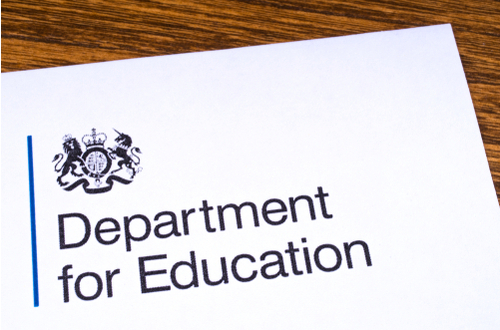Summary of the key changes to the Academies Financial Handbook 2020
The Academies Financial Handbook 2020 has now been released by the ESFA, and will be effective from 1 September 2020.
This year there are some key points which may require action by the Trust, and other clarifications which should be reviewed to ensure the Trust remains compliant. As always it is vital that finance staff and those charged with governance are familiar with the requirements of the AFH, which is available at
https://assets.publishing.service.gov.uk/media/5ef0a9a5d3bf7f6c03ed25b7/Academies_Financial_Handbook_2020.pdf
.
Here is a round up of the key changes:
Governance
There are some key changes in the area of Governance, which may require specific action by the Trust:
- The AFH confirms that the Members cannot be employees of the Trust. Previously this has been permitted if allowed under the Trust’s Articles, however this caveat has now been removed. This change is effective from 1 March 2021, and therefore the structure of the Board of Members should be reviewed prior to this date.
- The responsibilities of the Trustees has been updated to specify the responsibility for the trust’s financial sustainability and ability to operate as a going concern, however this is not a new requirement and has always fallen within the responsibilities of the Trustees as Directors under Company Law.
- It is now a requirement for the Trust to appoint a Clerk to support the Board of Trustees. Section 1.40 sets out the role of the Clerk.
Internal Scrutiny
There is a continuing trend towards strengthening the internal scrutiny arrangements, as we have seen in the past few years. There are a few specific changes to the requirements this year:
- The option for internal scrutiny to be carried out by the external auditor has been removed. This is in line with the updated Ethical Standard published by the Financial Reporting Council, and is effective for accounting periods commencing on or after 15 March 2020, so for most trusts this will take effect from 1 September 2020. Trusts that currently fulfil the internal scrutiny requirement with their external auditor will therefore need to revisit their arrangements.
- It is now specified that internal scrutiny should cover both financial and non-financial controls and risk management procedures. The AFH highlights that Trusts can draw on other individuals or organisations where specialist non-financial knowledge is required. In effect this means that the programme of internal scrutiny does not need to be delivered by one single individual or organisation and the Trust can draw on various experts as required.
- As set out in the 2019 AFH, Trusts will be required to submit an annual summary report of the internal scrutiny work carried out during the year. This report should the findings, recommendations and conclusions of any non-financial specialists where applicable (as per the above point).
- The ESFA has published an internal scrutiny good practice guide which will be a useful reference points in reviewing your Trusts arrangements:
https://www.gov.uk/government/publications/academy-trust-financial-management-good-practice-guides/internal-scrutiny-in-academy-trusts
Executive Team
- The AFH now specifies that the Accounting Officer and Chief Financial Officer should be employees of the Trust. Whilst in most Trusts this will be the case, there may be some situations where these roles are filled by individuals on a consultancy basis, and these arrangements should now be reviewed. The AFH indicates that prior ESFA approval is required where the Trust is proposing to fulfil either of these roles with non-employees, in exceptional circumstances.
- The AFH now suggests that CFOs should maintain CPD, and larger trusts should consider appropriate qualifications when appointing a CFO.
General controls
There have been a few clarifications in the area of general controls, as follows:
- It is now a ‘must’ requirement for the Trust to maintain a fixed asset register to help manage and oversee assets.
- Estimates of pupil numbers should be reviewed and challenged termly.
- The AFH encourages the use of an integrated approach to curriculum and financial planning. The ESFA have published a guide on this subject:
https://www.gov.uk/guidance/integrated-curriculum-and-financial-planning-icfp
- The trust must now publish on its website, in a separate readily accessible form, the number of employees whose benefits exceeded £100k, in £10k bandings. This disclosure is already included in the financial statements (and is in fact required for all employees whose benefits exceed £60k). Benefits for this purpose include salary, other taxable benefits and termination payments, but not the trust’s own pension costs.
- The whistle blowing procedures must now be published on the website.
- The AFH now restricts the purchase of alcohol from Trust funds (previously this has been included in the Academy Accounts Direction), except where it is to be used in religious services.
- There are further details about the requirement and responsibilities for the risk register, set out in section 2.38
Audit and risk committee
Section 4.17 lists the responsibilities of the committee in respect of the external audit, including:
- Reviewing the external auditor’s plan
- Reviewing the annual report and accounts
- Reviewing the auditor’s findings and management’s responses to those findings.
- Assessing the effectiveness and the resources of the external auditor to provide a basis for reappointment or retendering.
- Producing an annual report to the Board of Trustees and the Board of Members on the committee’s conclusions.
Academies Accounts Direction 2019 to 2020
There are several presentational changes to the accounts notes, however there are some key requirements affecting the Trustees’ Report which will need to be considered as we approach the year end. We are also expecting that additional disclosure will be required in respect of any support received in connection with Covid-19, however this is yet to be published by the ESFA.
- There are a few new requirements for the Trustees’ Report this year, including the success of the company, employee engagement and business relationships. The template for Coketown has been updated accordingly to incorporate these elements.
- For any large Trusts, which consume more than 40,000kWh of energy in a reporting period, there is now a requirement to disclose details regarding the Trust’s energy usage in the Trustees Report.
The ESFA have published guidance to assist Trusts in this area:
https://www.gov.uk/government/publications/academy-trust-financial-management-good-practice-guides
Briefly, the requirements are as follows:
- its UK annual energy use (in kWh) as a minimum relating to gas, purchased electricity and transport fuel (and previous year’s figures, except in the first year) and associated greenhouse gas emissions (in tonnes of carbon dioxide equivalent). There are Government conversion factors to help measure energy consumption in common units
- an emissions intensity ratio chosen by the Trust. Intensity ratios compare emissions data with an appropriate business metric or financial indicator, such as pupil numbers, to allow comparison over time or with other organisations
- methodologies used in calculation of disclosures
- a narrative of measures taken to improve energy efficiency in the period of the report. If no measures have been taken, this should be stated
Large Trusts are those which meet two out of three of the following criteria: gross income of £36 million or more, balance sheet assets of £18 million or more, 250 employees or more.
- In connection with the update to the FRC’s Ethical Standard, as set out in the updates to the AFH, Trusts are required to disclose the impact on their internal scrutiny arrangements where applicable. This disclosure should be included in the Governance Statement.
To keep up-to-date with the latest Education and Academies related news, click here to subscribe and be one of the first to receive our latest Summer Education Bulletin coming soon.
If you have any questions about the above, or would like more information specific to your circumstances, please enter your email address below and we will get in touch:













